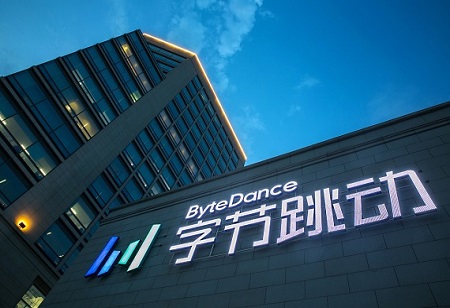
ByteDance considers Singapore for genAI push, posts Job Openings

 ByteDance, the parent company of TikTok, has been actively strengthening its AI capabilities, with a particular focus on generative AI. The Chinese tech giant has announced more than 100 job opportunities in this field, primarily situated in Singapore and the United States. Approximately 40 of these positions are specifically for roles related to large language models (LLMs) in Singapore. Large language models, also referred to as foundational models, are a class of AI systems adept at generating diverse content such as text, images, and videos based on given prompts. These models undergo extensive training with vast datasets and possess advanced machine-learning capabilities.
ByteDance, the parent company of TikTok, has been actively strengthening its AI capabilities, with a particular focus on generative AI. The Chinese tech giant has announced more than 100 job opportunities in this field, primarily situated in Singapore and the United States. Approximately 40 of these positions are specifically for roles related to large language models (LLMs) in Singapore. Large language models, also referred to as foundational models, are a class of AI systems adept at generating diverse content such as text, images, and videos based on given prompts. These models undergo extensive training with vast datasets and possess advanced machine-learning capabilities.
Most of ByteDance's recent LLM job offerings are focused on areas such as training, safety, and data acquisition. According to a knowledgeable source, the company's interest in Singapore and the US stems from the abundance of talent in these regions. In Singapore, the job opportunities span across various teams tasked with integrating and evaluating the AI capabilities for ByteDance's diverse range of products, the source added.
The recruited individuals will be engaged in enhancing ByteDance's proprietary Chinese LLM model known as Yunque, which drives its Doubao app, akin to ChatGPT. Additionally, they will contribute to the advancement of the company's other generative AI applications, which are validated using alternative foundational models like OpenAI. Doubao, developed by ByteDance, provides a spectrum of services including chatbots, English learning aids, writing support, AI-generated visuals, and coding assistance.
Last December, OpenAI halted ByteDance's account following allegations from The Verge claiming that the Chinese company had covertly utilized OpenAI's technology to construct its own foundational model. The report referenced internal ByteDance documents indicating the use of OpenAI's API at different stages of development for a project internally dubbed "Project Seed." Nonetheless, ByteDance refuted the allegations, asserting that its teams only utilized the technology from the US-based company to a restricted degree for the purposes of testing and assessing its own LLM.
Another potential influence on ByteDance's hiring surge could be its perceived lag behind other prominent Chinese companies. Competitors like Alibaba and Baidu had introduced their own LLMs considerably earlier. Despite ByteDance's OpenAI account suspension, the company retains access to OpenAI's APIs through a Microsoft Azure license. Given heightened scrutiny in global markets, particularly in the US, ByteDance appears inclined to rely on foundational models from external entities rather than exclusively utilizing its own LLM for global market endeavors.

